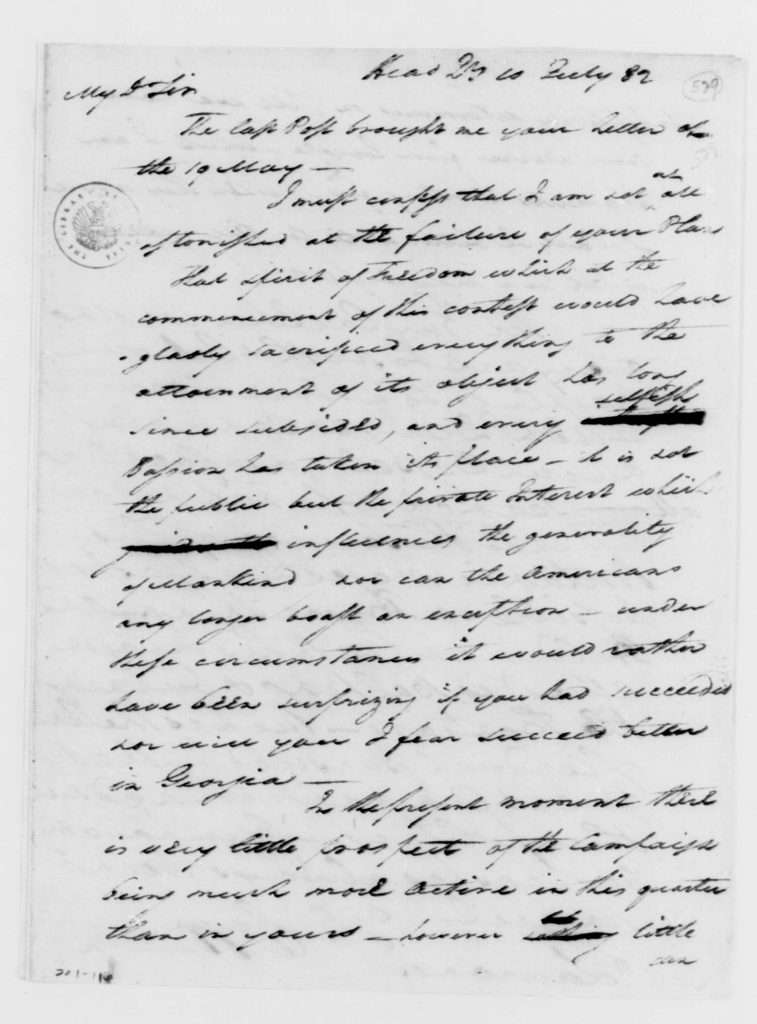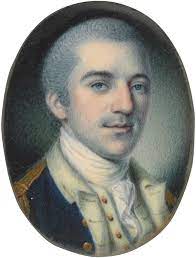South Carolinian John Laurens, close friend to Alexander Hamilton, was fervent in plans to enlist enslaved people in the Continental Army. On March 29, 1779, the Continental Congress agreed to compensate Georgian and South Carolinian slaveholders as much as $1,000 for enslaved men serving in the army, even going as far as emancipation. The Continental Congress stated:
Resolved, That congress will make provision for paying the proprietors of such negroes as shall be inlisted for the service of the United States during the war, a full compensation for the property at a rate not exceeding one thousand dollars for each active able bodied negro man of standard size, not exceeding thirty five years of age, who shall be so inlisted and pass muster.
That no pay or bounty be allowed to the said negroes, but that they be cloathed and subsisted at the expence of the United States.
That every negro who shall well and faithfully serve as a soldier to the end of the present war, and shall then return his arms, be emancipated and receive the sum of fifty dollars.
However, in a letter to George Washington on May 19, 1782, Laurens reported that the plan was rejected by South Carolina. “The single voice of reason,” he wrote, “was drowned by the howlings of a triple-headed monster in which Prejudice Avarice & Pusillanimity were united.”
Responding to that letter on July 10, 1782 George Washington (in the letter photographed above) expressed dismay that South Carolina rejected the proposal. He lamented that “it is not the public but the private Interest which influences the generality of mankind.” Washington wrote:
The last Post brought me your Letter of the 19 May.
I must confess that I am not at all astonished at the failure of your Plans.
That Spirit of Freedom which at the commencement of this contest would have gladly sacrificed every thing to the attainment of its object has long since subsided, and every selfish Passion has taken its place—it is not the public but the private Interest which influences the generality of Mankind nor can the Americans any longer boast an exception—under these circumstances it would rather have been surprizing if you had succeeded nor will you I fear succeed better in Georgia.
Other states, such as Rhode Island enlisted African Americans into service. However, many more African Americans escaped and fought on the side of English.
Discover more on the Hamilton & Washington tour. You can purchase tickets on this page. Click the “Book Your Tour” button.
Sources:
“Journals of the Continental Congress, March 29, 1779” Encyclopedia Virginia, https://encyclopediavirginia.org/entries/journals-of-the-continental-congress-march-29-1779.
John Laurens, “To George Washington from John Laurens, 19 May 1782,” National Archives Founders Online, https://founders.archives.gov/documents/Washington/99-01-02-08462.
George Washington, “From George Washington to John Laurens, 10 July 1782,” National Archives Founders Online, https://founders.archives.gov/documents/Washington/99-01-02-08890.











